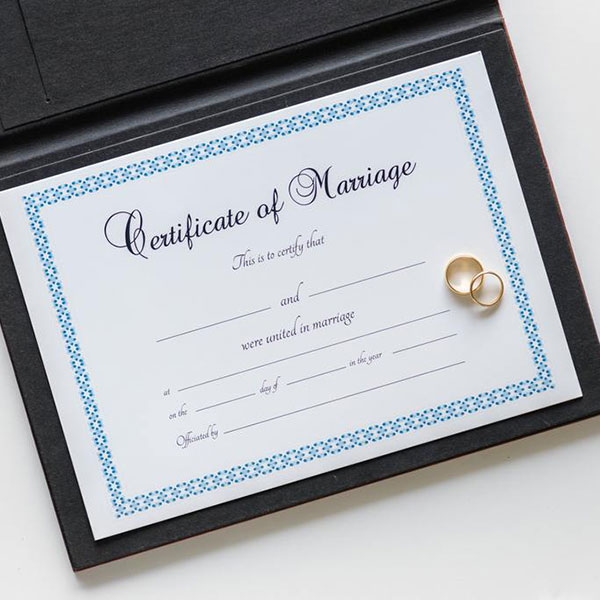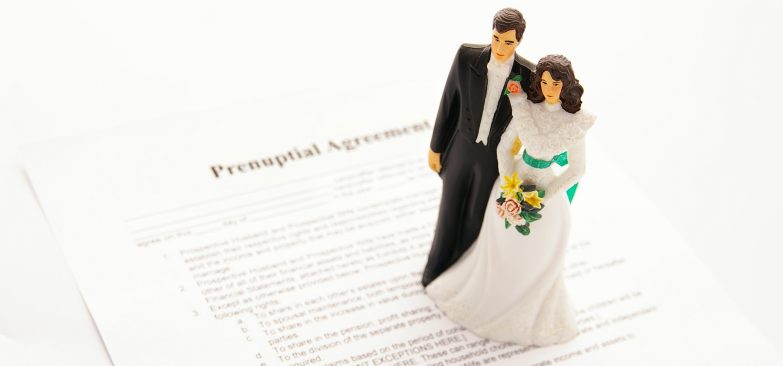When people talk about prenuptial agreements, they are usually referencing high-profile celebrity marriages. With such massive net-worths and disparaging wealth gaps between spouses, these agreements are frequently discussed. However, a prenuptial agreement isn’t exclusive to the rich or famous; it is something that anyone considering marriage should understand.
When two people decide to enter a marital relationship, they aren’t just professing their commitment. They are entering into a legal contract that can drastically affect financial assets. For partners, a prenuptial agreement isn’t an easy topic during an engagement. A prenuptial agreement isn’t just about distributing and dividing assets; it can also cover a variety of other legal issues like the disposition of property upon death.
So, What Is A Prenuptial Agreement?

If we strip away all of the details and complexities, a prenuptial agreement establishes financial and property rights for each spouse in the unfortunate case of divorce. While millennials are actually dropping the nation’s divorce rate, the divorce rate in the United States is estimated to be between 40-50%. It’s even higher for subsequent marriages.
Given these divorce rates, understanding prenuptial agreements is important. As we mentioned, these agreements relate to property and finances, but they also resolve alimony and debts. Each state enforces prenuptial agreements a little differently. In Minnesota, prenups may cover some of these issues:
- The division of assets and debts in the unfortunate case of a divorce or death
- Each spouse’s rights to property that may be owned by one individual or as a couple
- How inheritances or gifts are handled — either as marital or separate property
- Whether or not a spouse is entitled to alimony in the case of a divorce (along with details on how much or how long)
- Potential death benefits from their partner’s insurance policy
A prenuptial agreement is a tough pill to swallow for some. However, it’s a way of protecting both parties in the unfavorable case of death or divorce.
What Should Your Prenuptial Agreement Look Like?
Rarely do two prenuptial agreements ever look the same. Just like with a relationship, these agreements are unique to the spouses that are engaging in a lifelong promise. Given their distinctive qualities, putting forth a “typical” agreement would be imprudent, but below are some points to consider if the situation should arise.
Think About The Future
Shaping a prenuptial agreement should never be done last minute. Planning and preparing for marriage is hard enough. Deciding to talk about something as sensitive as pre-nuptials can only make matters worse, especially in the weeks leading up to a wedding. So, plan ahead and discuss these matters long before marriage.
Honest And Open
Assets, property, and finances aren’t something that should be hidden away from a spouse. During a prenuptial agreement, both parties should be honest and open. Fully disclosing assets is required and helps attorneys shape the right agreement and prevents any surprises down the road that could further complicate a divorce.
This openness includes inheritances. Both properties and assets that may be inherited by a party will need to be considered in the prenup. This information may be useful during a discussion regarding spousal maintenance, otherwise known as alimony. Spousal maintenance may or may not be a topic in a prenuptial agreement.
Leave The Kids Out Of It

To be fair, they were never a part of the discussion in the first place. Prenuptial agreements cannot provide for or limit child support in any way. A judge will make the decision regarding child support or custody during a divorce proceeding. Even if for whatever reason child support or custody is included in a prenuptial agreement, the court will not take that into consideration during a ruling.
Hire The Right Counsel
Perhaps the most important decision when drafting a prenuptial agreement is choosing the right lawyer. It’s not necessarily a law that each spouse have a separate lawyer, but an experienced lawyer who understands the delicacy of a prenup can lead to better protections. With the recent change in case law, hiring an attorney is even more important for both parties. The wrong lawyer may create far more problems than solutions, way before a wedding takes place. A prenuptial agreement is exactly what it sounds like — an agreement. It isn’t there to create conflict, bickering, or secrets between spouses.
Protecting Your Prenup In Minnesota
Here in the Land of 10,000 Lakes, the state actually governs the enforcement of prenuptial agreements. While many other states fall under what is known as the Uniform Prenuptial Agreement Act (UPAA), Minnesota does not. Because of recent case law in Minnesota, the validity of many prenuptial agreements is uncertain. Prenuptial agreements must comply with Minnesota statutes and the common law established by Minnesota case law.
There are several considerations a court may look at in regard to the fairness of a prenup. For instance, a court may examine earning, asset or debt disclosures. The court may also take a look at whether or not each spouse was able to meet with the legal counsel of their choice or that the agreement was signed voluntarily.
It’s also important that your prenuptial agreement is conscionable. This means that it is fair. During a divorce, the court will evaluate the prenup and determine whether or not the agreement had any completely unfair discrepancies. For instance, if one spouse gets every asset, and the other gets nothing. The court may consider the agreement invalid in this case.
Get Help With Your Prenuptial Agreement
If you’re thinking about tying the knot, it’s never too soon to start finding the right legal help with your prenuptial agreement. Don’t wait until the last minute. This agreement is all about transparency from the start.
M. Sue Wilson has been practicing family law for over 40 years and will work on your behalf for a fair prenuptial agreement.
This article contains general legal information and does not provide legal advice. For legal advice, please contact us.

